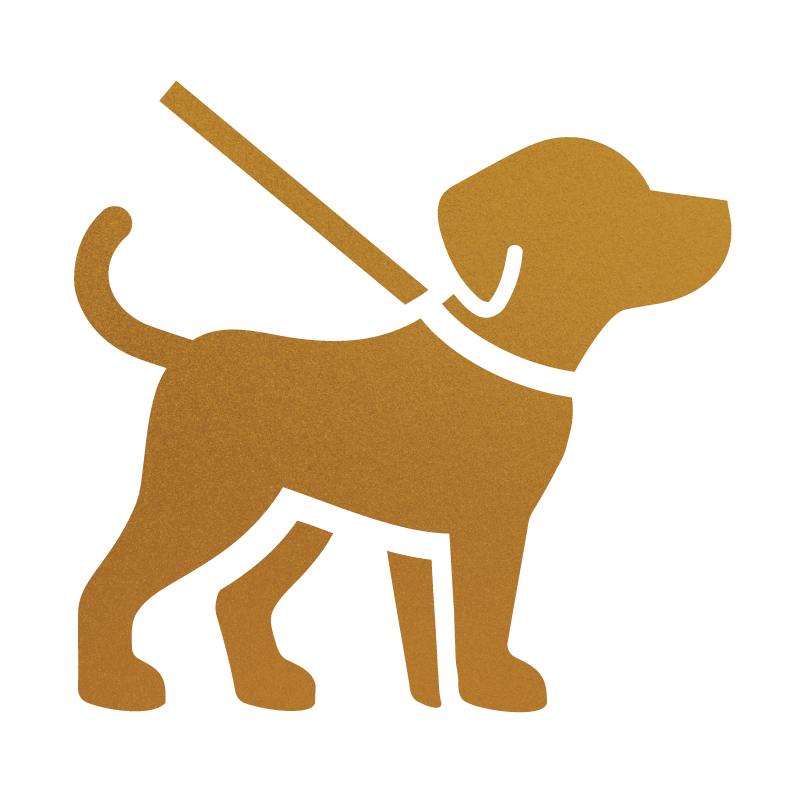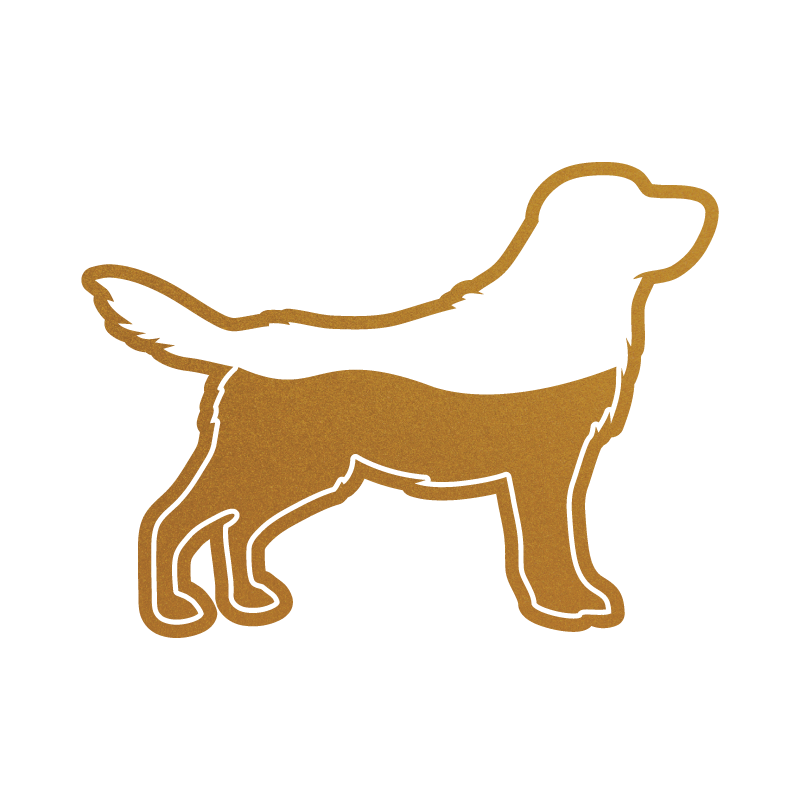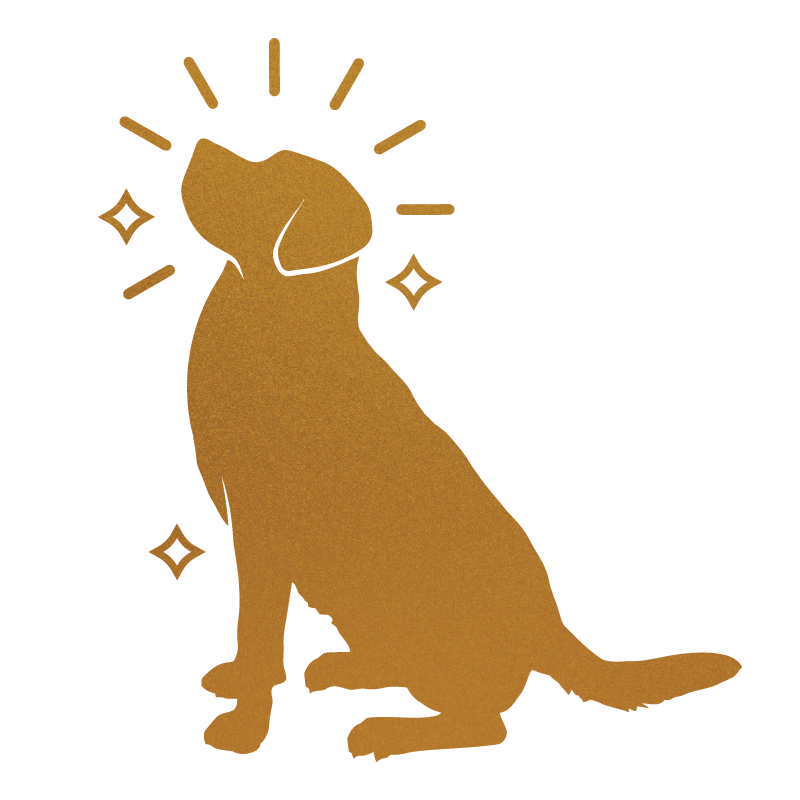How to Get A Certified Therapy Dog
What Is the Process to own a Certified Therapy Dog?
Therapy dogs are dogs that are trained to provide comfort, affection, and support to people who are in hospitals, nursing homes, schools, or other settings. If you are interested in getting a therapy dog, here are some steps you can follow:
Choose a suitable breed: Some breeds are more suitable for therapy work than others due to their temperament, size, and energy level. We prefer to work with Poodles and F1B Doodle Options.
Train your dog: Therapy dogs need to be well-trained and well-behaved in order to be effective. Start training your dog as early as possible and make sure they are obedient and comfortable around new people and environments.
Get certified: Many therapy dog organizations require that dogs be certified before they can visit hospitals, nursing homes, or other facilities. To get certified, you will need to pass a test that demonstrates your dog's good manners and obedience skills.
Find a therapy dog organization: There are many organizations that provide therapy dog services. Look for one that operates in your area and that meets your needs and goals. Some organizations provide training and certification for therapy dogs, while others rely on volunteers who already have trained and certified therapy dogs.
Consider liability insurance: It's a good idea to get liability insurance for your therapy dog in case they cause any damage or injuries while on a visit. This can protect you financially and ensure that you are able to continue providing therapy services.
Make visits: Once you and your dog are trained and certified, you can start making visits to hospitals, nursing homes, schools, and other facilities. Be sure to follow the guidelines and protocols of the organization you are working with, and always be respectful of the people you are visiting.
STEP 1: ADOPTION - OPTION A
We give preferential treatment to those who are looking for a dog that will be utilized in one of the three categories of support animals. We work directly with you and your organization to select a breeding pair that is going to most likely produce a puppy that will be the best fit for your overall objective. We need to know the type of therapy your dog will be working in and as much information about the future handler and teammate. Stokeshire Doodles and Poodles can be trained to provide comfort and affection to people in hospitals, retirement homes, schools, mental health institutions, airports, and many other settings.
Not all dogs are created equal, even within the same litter, there can be drastic differences in personalities and responses to stressors.
Requirements for a Therapy Dog
Therapy dogs are privately owned, but they must undergo a screening process to ensure that they are a good fit for their intended purpose.
A registered therapy dog will need to meet the following criteria:
Temperament
A certified therapy dog must be a friendly dog. Therapy dogs must be well-tempered. This means that they are not quick to anger, and do not get stressed out easily. They should enjoy being touched, and not react aggressively if anyone mishandles them. While some of these behaviors can be trained, dogs will need to be inherently calm to some degree.
Shedding
Doodles and Poodles make excellent options for Therapy for their low-shedding coats.
Social
Therapy dogs must be social and friendly. This is perhaps the most important requirement, as they will need to cheer people up when they need it the most. However, dogs that are overly energetic can be too rough with certain patients (especially the elderly and young children), so therapy dogs must be social, but not overly enthusiastic.
Adaptable
Therapy dogs will need to adapt to various environments. Sometimes they may need to provide support in highly stimulating environments like preschool classrooms, while sometimes they may need to help patients in cramped living spaces. A dog that is uncomfortable or unadaptable may become shy or even aggressive, which can cause unnecessary harm.
Knowing these requirements:
We help you select the LITTER, having gone through the APPLICATION process and placed a DEPOSIT with an approved application.
We require a PICK OF THE LITTER option must be purchased to allow for the first or second selection for this particular litter.
At 6-7 Weeks of Age, the Litter will be assessed by one of our trainers.
We will formally recommend a puppy or puppies who have met the standards for a therapy dog, which include having a high touch tolerance, being human-focused, and are not sensitive to sight or sound. They need to have a medium score for many of the remaining categories. We consult with a Certified Professional Dog Trainer to confirm the selection.
High Touch Tolerance, being Human-Focused, and not Sensitive to sight or sound. Have a Medium score for many of the remaining categories
STEP 1: ADOPTION - OPTION B
Work with us and our program to secure an adult male in our breeding program OR who has retired. This may be an option for those who are looking to secure a certification on a shorter timeline with fewer variables. These may be a great option for organizations that may not have a full-time care person or need additional flexibility in boarding and caretaking.
This option would encompass a Stokeshire Guardian Home Agreement
We’d place you with a dog or puppy that we believe would be a good fit to go through the additional training and certification program to be a therapy dog.
This male, if intact, would still be utilized within our program.
These dogs are donated on scholarship at zero cost.
Additional costs include the board and training required to reach certification at $80/day.
Step 2: Train
At 8 Weeks of Age, your puppy will enter the 12-Week Doodle School Program. Your puppy will be placed with the top trainer for your end goal. It is possible that your puppy will work with several trainers over the course of Doodle School allowing for greater depth of our Stokeshire Socialization Protocol; an essential component to the success of having a Certified Therapy Dog.
At the end of the 12-Week Program, your puppy should exhibit these traits:
Friendly
Obedient
Quiet
Unaggressive
Outgoing
Gentle
Relaxed
Not easily startled
Over the next 32 weeks, our trainers work with a supplementary training facility that is a member of the Alliance of Therapy Dogs to successfully achieve all three AKC Good Citizen++ levels before applying for certification.
The American Kennel Club (AKC) recommends that dogs pass the Canine Good Citizen (CGC) test prior to registration. According to the AKC, this exam focuses on 10 key traits:
Test 1: Accepting a Friendly Stranger. The dog will allow a friendly stranger to approach and speak to the handler (the dog owner) in a natural, everyday situation.
Test 2: Sit Politely for Petting. The dog will allow a friendly stranger to pet it while it is out with the handler.
Test 3: Appearance and Grooming. The dog will permit someone to check its ears and front feet, as a groomer or veterinarian would do.
Test 4: Out for a Walk (walking on a loose lead). Following the evaluator’s instructions, the dog will walk on a loose lead (with the handler/owner).
Test 5: Walking Through a Crowd. The dog will walk through a small crowd of pedestrians, passing in close proximity to at least three people.
Test 6: Sit and Down on Command and Stay in Place. The dog must demonstrate the ability to sit AND lie down on command, then the owner chooses the position for leaving the dog in the stay.
Test 7: Coming When Called. The dog will come when called by the handler (from 10 feet away on a leash).
Test 8: Reaction to Another Dog. The dog will behave politely around other dogs. Two handlers and their dogs approach each other from a distance of about 20 feet, stop, shake hands, and exchange pleasantries.
Test 9: Reaction to Distractions. The evaluator will select and present two distractions such as dropping a chair, to which the dog must react properly.
Test 10: Supervised Separation. This test demonstrates that your dog can be left with a trusted person. The evaluator will hold your dog’s leash while you go out of sight for three minutes.”
Next, our trainers will work with a certified tester/observer in the Central Wisconsin area to test our candidate. This test includes a handling portion that tests your dog’s basic good manners, demeanor, and handling skills.
After the handling portion of the test, the trainer and your dog are supervised by a tester/observer during visits with intended residents, students, or clients in a facility of their choosing.
Upon successful completion of these visits and submission of the application paperwork, you and your dog may become a Certified Therapy Team!
Throughout this process, stay in close contact both virtually and in person, to not only keep you in close contact with your puppy’s progress but to help educate you along the journey towards becoming a team.
Step 3: Registering Your Dog
Therapy dog certification organizations require dogs to be at least one year old, and fully updated on all vaccines and shots, which will be completed by our staff and trainers while in our program. We do require that the puppy carries insurance for the entirety of its time within the program. All routine vet visits and medications are paid for by Stokeshire. We will provide documentation from the Medford Vet clinic regarding your dog’s age and medical history. We work directly with the Alliance of Therapy Dogs to certify your dog!
How much does a Certified Therapy Dog cost?
Option A: Puppy - 1 year
Our Puppies Start at about $2500 for a Standard AKC Registered Poodle with PICK OF THE LITTER (Scholarships are available)
12 - Weeks of Doodle School starts at $6000-$9000
Board, training, and care from 20 Weeks to 1 year of age is approx. $25,000
The total Estimated Cost is: $33,500 - $38,500
We do offer grant writing services and work with outside non-profits and organizations to assist with this investment.
Option B: Guardian Adult Male Board and Train
We donate the cost of the dog, who will continue to be in our program for breeding purposes.
An intact male dog or older puppy, we select, will enter into a board and training program with one of our trainers to complete Canine Good Citizen and the Certification Process.
The cost is $100/day until the Certification and includes all necessary care, medications, treatment, and training to meet certification.
Estimate about 25 Weeks to Completion
The total Estimated Cost is: $12,500-$25,000
Option C: Guardian Adult Retired Male or Female Board and Train
We donate the cost of the dog
The cost is $100/day until the Certification and includes all necessary care, medications, treatment, and training to meet certification.
Estimate about 25 Weeks to Completion
The total Estimated Cost is: $12,500-$25,000
Option D: Puppy to 20 Weeks with Hybrid Option
$2500 for a Standard AKC Registered Poodle with PICK OF THE LITTER (Scholarships are available)
12 - Weeks of Doodle School starts at $6,000-$9,000 subject to change
You take home your puppy at 20 Weeks after completion of Doodle School.
Over the next 32 Weeks, we create a custom program that fits your lifestyle and works towards certification before your puppy is 2 years old.
This is a more collaborative process and does require some logistics and additional dedication and commitment from the handler. We offer continued support, resources,
Certification is the responsibility of the owner/handler.
The total Estimated Cost is: $8,500 - $12,500 - Custom Quote’s Available




